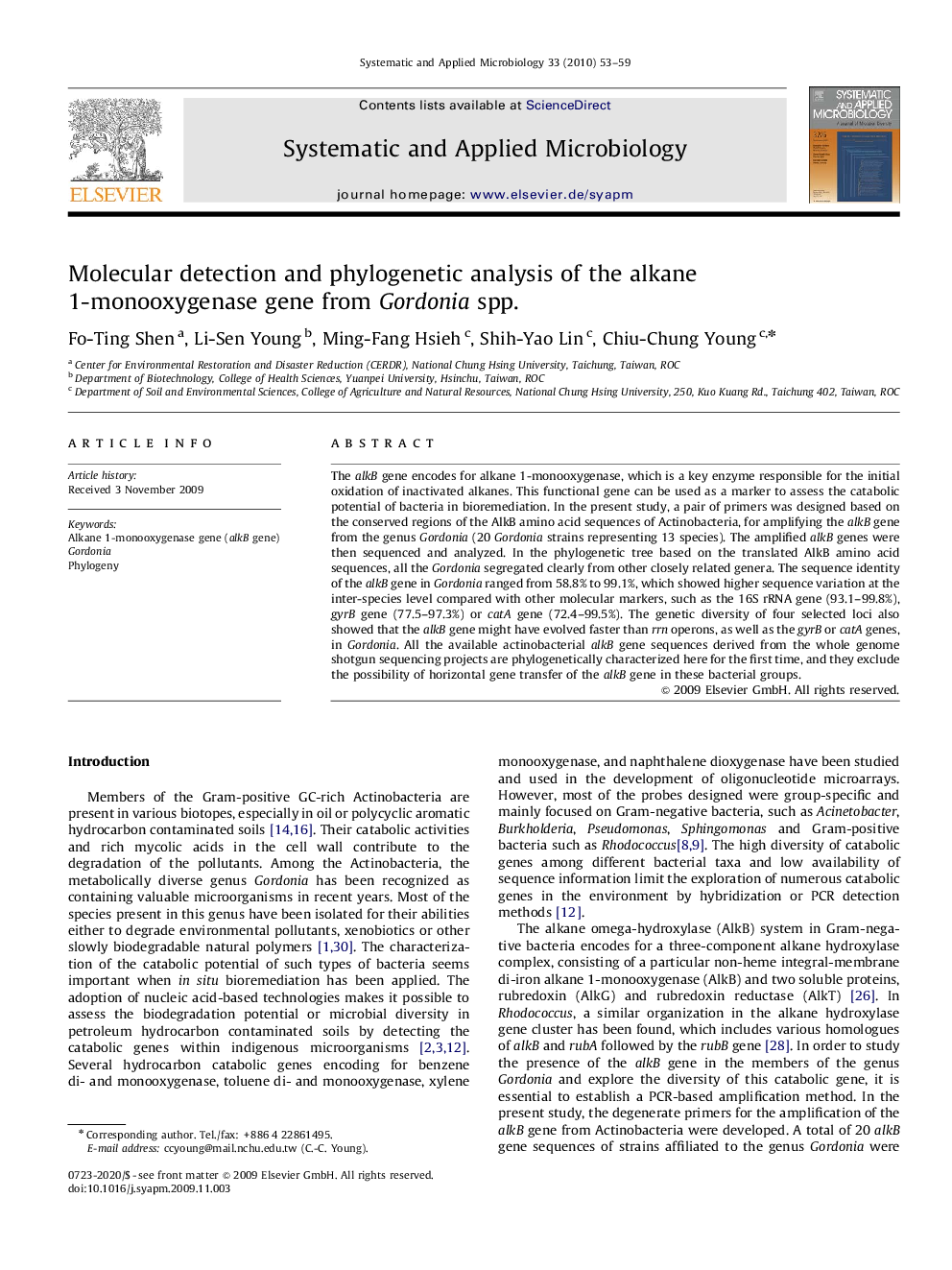| Article ID | Journal | Published Year | Pages | File Type |
|---|---|---|---|---|
| 2063878 | Systematic and Applied Microbiology | 2010 | 7 Pages |
The alkB gene encodes for alkane 1-monooxygenase, which is a key enzyme responsible for the initial oxidation of inactivated alkanes. This functional gene can be used as a marker to assess the catabolic potential of bacteria in bioremediation. In the present study, a pair of primers was designed based on the conserved regions of the AlkB amino acid sequences of Actinobacteria, for amplifying the alkB gene from the genus Gordonia (20 Gordonia strains representing 13 species). The amplified alkB genes were then sequenced and analyzed. In the phylogenetic tree based on the translated AlkB amino acid sequences, all the Gordonia segregated clearly from other closely related genera. The sequence identity of the alkB gene in Gordonia ranged from 58.8% to 99.1%, which showed higher sequence variation at the inter-species level compared with other molecular markers, such as the 16S rRNA gene (93.1–99.8%), gyrB gene (77.5–97.3%) or catA gene (72.4–99.5%). The genetic diversity of four selected loci also showed that the alkB gene might have evolved faster than rrn operons, as well as the gyrB or catA genes, in Gordonia. All the available actinobacterial alkB gene sequences derived from the whole genome shotgun sequencing projects are phylogenetically characterized here for the first time, and they exclude the possibility of horizontal gene transfer of the alkB gene in these bacterial groups.
